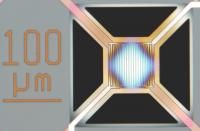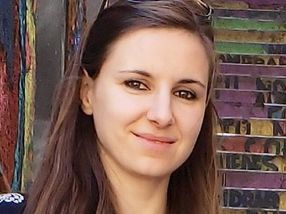Heinrich Emanuel Merck Award for 2010 granted to leading Italian scientist
Professor Torsi from the University of Bari receives Analytical Sciences distinction
Merck KGaA announced that the 2010 Heinrich Emanuel Merck Award for Analytical Sciences will go to Luisa Torsi, Professor of analytical chemistry at the University of Bari in Italy. This marks the first time that the award has been given to a woman and to a scientist in Italy. The award, which is worth EUR 15,000, will be presented at the EUCHEMS Congress in Nuremberg, Germany, on August 31, 2010.
For more than 20 years, the Heinrich-Emanuel-Merck Award has been recognizing scientists under the age of 45 whose work focuses on new methods in chemical analysis and the deployment thereof in applications aimed at improving the quality of human life, for example in fields such as environmental protection, life sciences or the biosciences.
Torsi is being recognized for her research work on organic semiconducting chemical sensors based on organic thin-film field effect transistors. Such components permit highly sensitive analytical measurements. This highly interesting technology makes it possible to measure so-called chiral substances, meaning the spatial arrangement of atoms in molecules.
Chiral substances are responsible for many biological effects in enzymes, antibodies or other molecular receptors. This in turn yields numerous applications in the synthesis of raw materials and active ingredients in Chemicals and Pharmaceuticals.
“Professor Torsi is a leading scientist and an outstanding individual who is internationally well connected. Her work on organic semiconducting sensors convinced the jury in every respect,” explained Dr. Klaus Dieter Franz, Head of Analytical Services at Merck. “Formerly the Heinrich Emanuel Merck Award was granted exclusively for achievements in analytical chemistry. It is now also aimed at researchers working in Life Sciences and Biosciences, since Merck has also made great strides in this direction. This has considerably expanded the pool of candidates.”
Topics
Organizations
Other news from the department people

Get the analytics and lab tech industry in your inbox
By submitting this form you agree that LUMITOS AG will send you the newsletter(s) selected above by email. Your data will not be passed on to third parties. Your data will be stored and processed in accordance with our data protection regulations. LUMITOS may contact you by email for the purpose of advertising or market and opinion surveys. You can revoke your consent at any time without giving reasons to LUMITOS AG, Ernst-Augustin-Str. 2, 12489 Berlin, Germany or by e-mail at revoke@lumitos.com with effect for the future. In addition, each email contains a link to unsubscribe from the corresponding newsletter.
Most read news
More news from our other portals
See the theme worlds for related content
Topic world Antibodies
Antibodies are specialized molecules of our immune system that can specifically recognize and neutralize pathogens or foreign substances. Antibody research in biotech and pharma has recognized this natural defense potential and is working intensively to make it therapeutically useful. From monoclonal antibodies used against cancer or autoimmune diseases to antibody-drug conjugates that specifically transport drugs to disease cells - the possibilities are enormous

Topic world Antibodies
Antibodies are specialized molecules of our immune system that can specifically recognize and neutralize pathogens or foreign substances. Antibody research in biotech and pharma has recognized this natural defense potential and is working intensively to make it therapeutically useful. From monoclonal antibodies used against cancer or autoimmune diseases to antibody-drug conjugates that specifically transport drugs to disease cells - the possibilities are enormous





























































